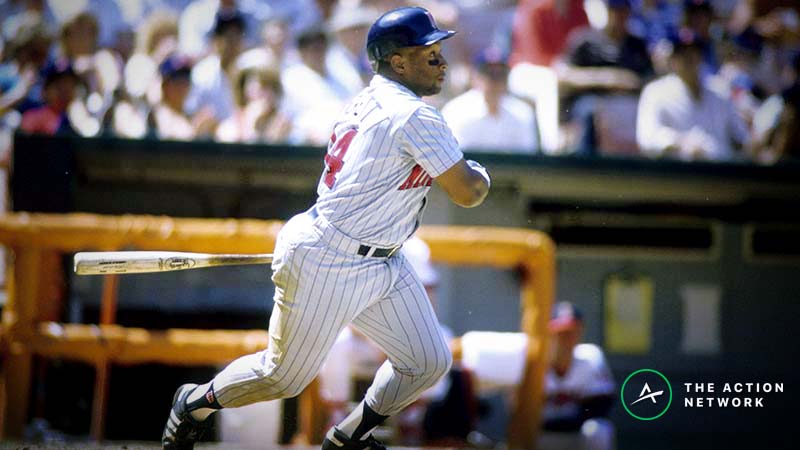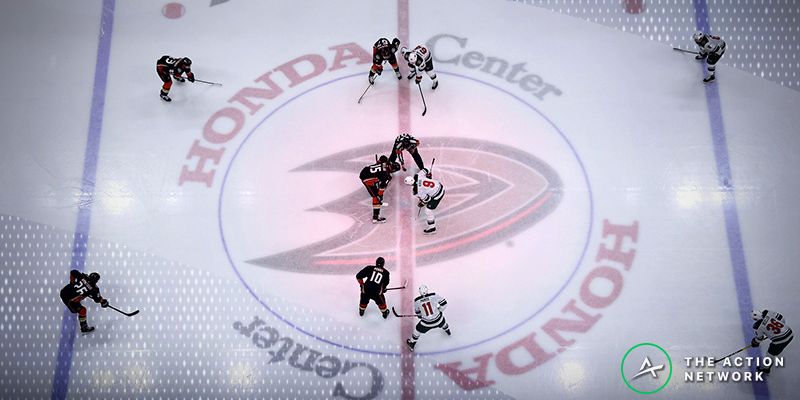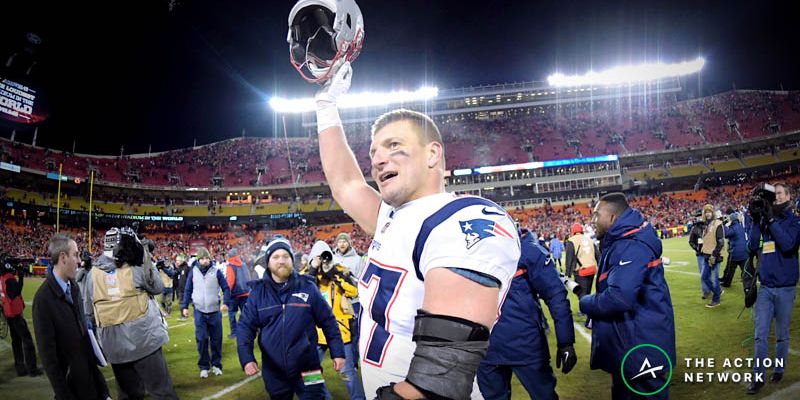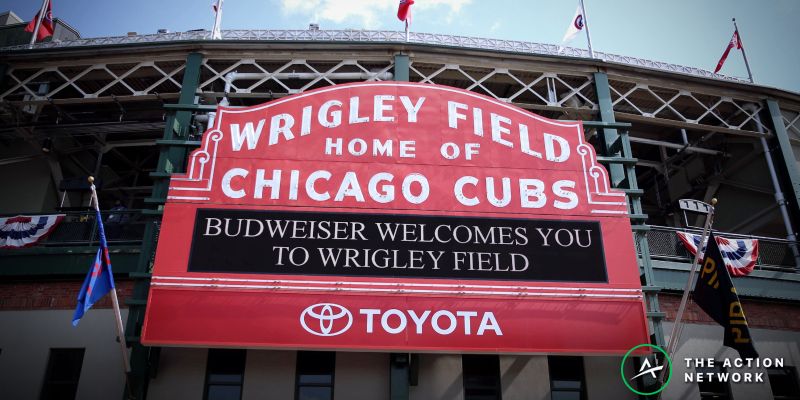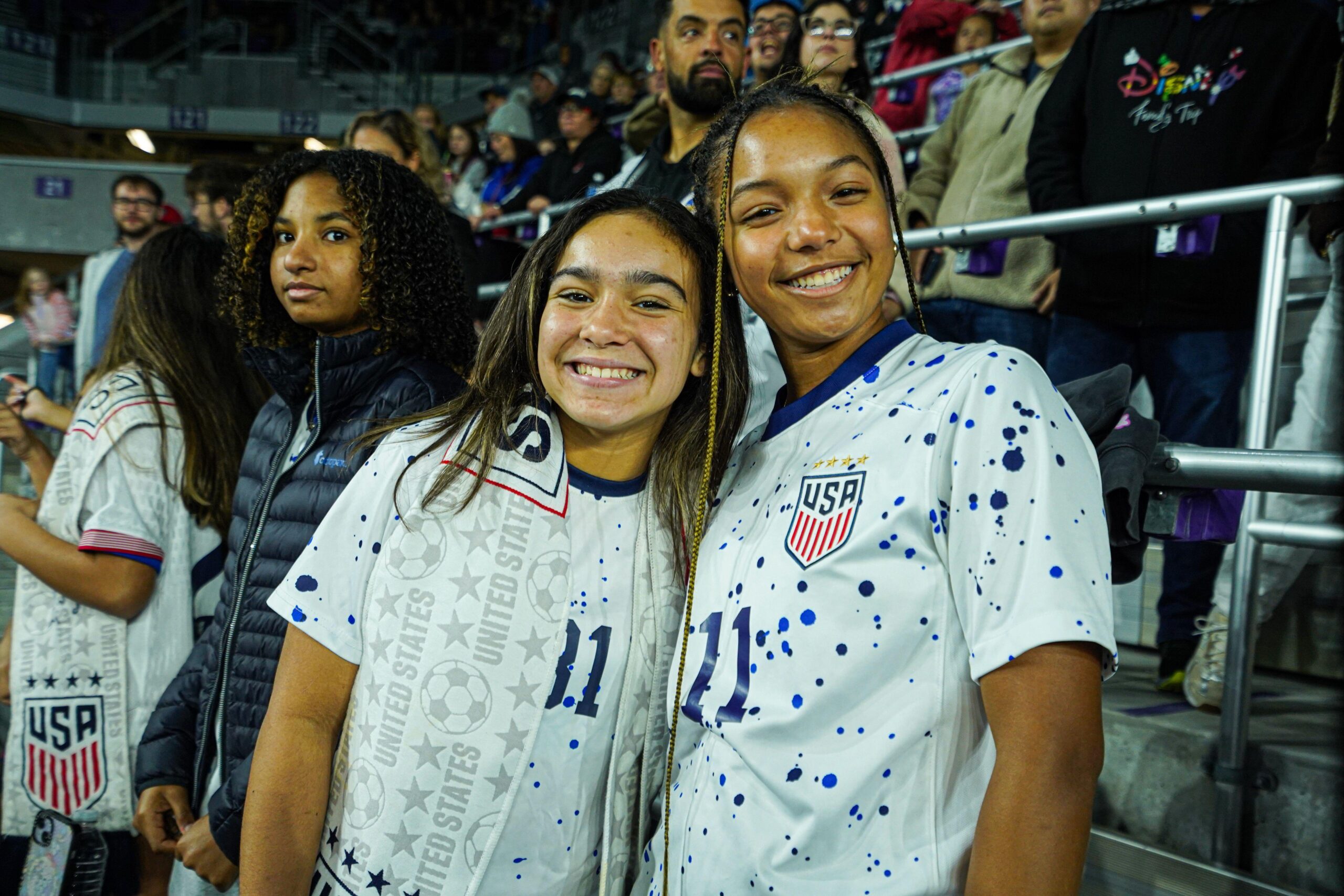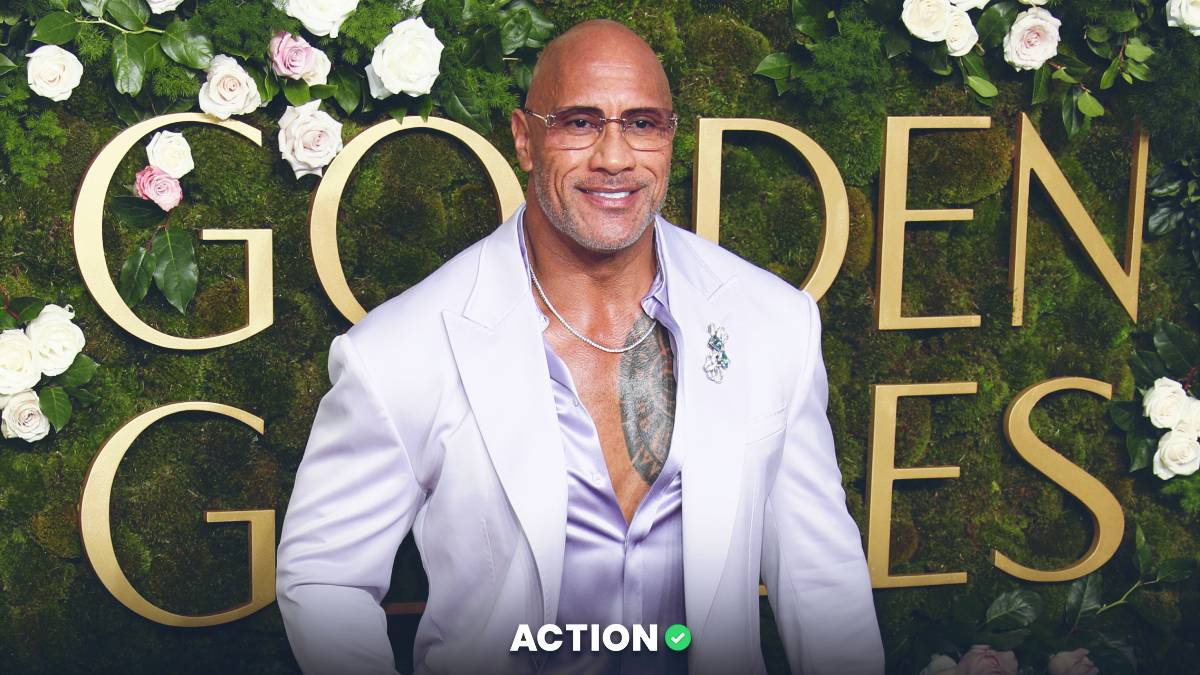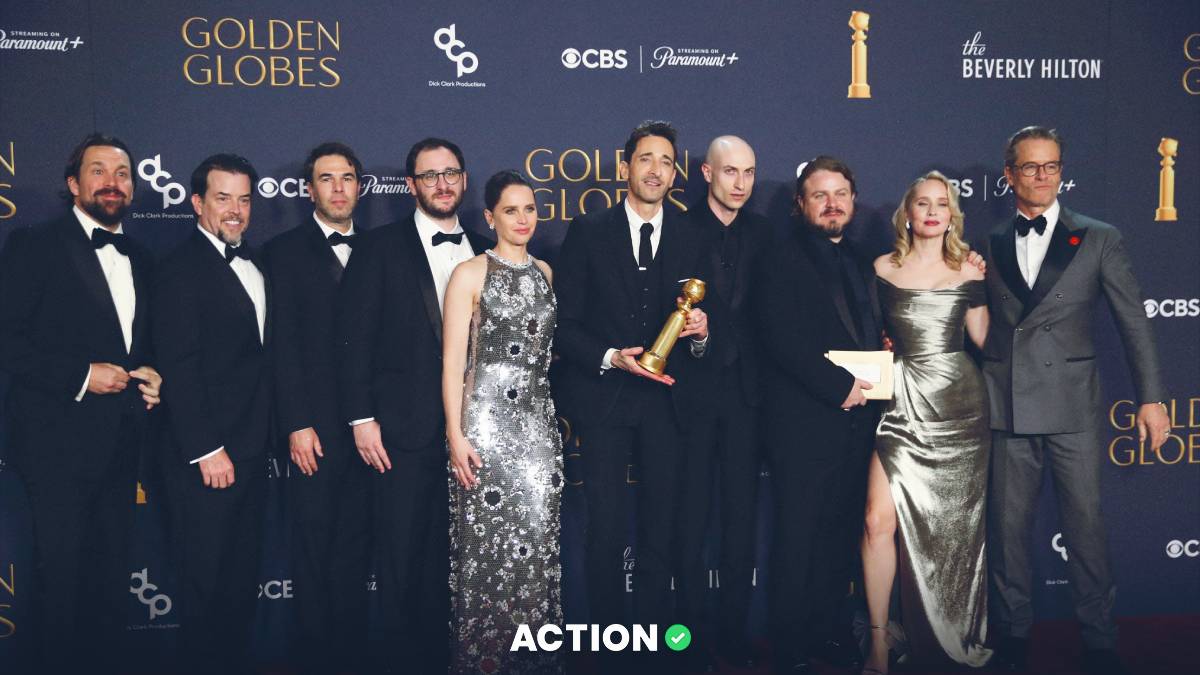As Opening Day in Major League Baseball approaches, the most likely World Series matchup — according to the betting market — would feature the New York Yankees (+500) and Los Angeles Dodgers (+700).
Those odds seem reasonable, but looking at the preseason odds of the eventual Pennant winners shows that the two favorites in the respective leagues have met only once since 1969 (Yankees vs. Braves in 1999).
In fact, the only league where an argument could be made for betting both favorites to meet in the championship is in the NBA.
Of the teams in the NBA Finals since the 1984-85 season, 93% of the 68 finalists were teams that were one of the top-five preseason favorites within their respective conference. The NBA also has the least amount of upsets during the playoffs with only 22 percent of series underdogs moving on to the next round.
What about the unlikeliest final matchups? Let's take a look:
Most Unlikely Finals Matchups
NBA
This was the toughest league to call, since it is the most predictable. Each time a relative longshot made the finals, the team in the other conference was one of the top three favorites to win its conference. Both teams should be somewhat long shots, not just one of the teams coming from nowhere.
Honorable mentions
1976, 1977 and 1978 NBA Finals
In each of these matchups, the Western Conference representative was a team that missed the playoffs and was below .500 in the previous season (Phoenix in 1976, Portland in 1977 and Seattle in 1978).
Their opponent from the Eastern Conference was most likely one of the top-three favorites entering the season (preseason odds were not available before 1984-85).
The NBA was in a state of flux during this stretch with the ABA merger occurring after the 1975-76 season, and saw only two teams eclipse the 55-win mark (Golden State with 58 wins in 1975-76 and Portland in 1977-78 with 58 wins) from the 1975-76 season to the 1978-79 season.
2002 NBA Finals
The Los Angeles Lakers were coming off back-to-back championships and were 2-1 to three-peat in 2001-02. Obviously they were not a surprise finalist.
The New Jersey Nets however, were 26-56 in the 2000-01 season after drafting Kenyon Martin first overall in the 2000 draft. They were 60-1 to win the championship (only three teams in the Eastern had longer odds).
The big offseason move that propelled New Jersey was trading Stephon Marbury to Phoenix for Jason Kidd in what was considered a lateral move at the time. The Nets doubled their win total in 2001-02, which was good enough for the No. 1 seed in the East, only to be swept by the Lakers in the Finals.
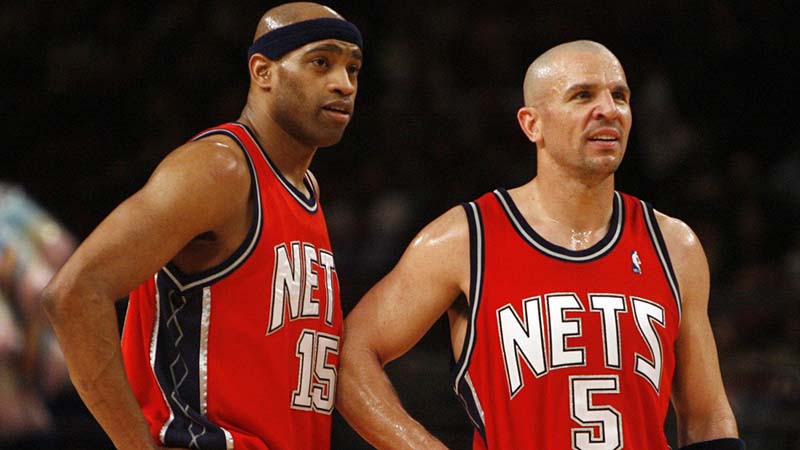
Winner
2008 NBA Finals
The closest the NBA has come to having both Finals teams finish with a losing record in the previous season, the Boston Celtics finished 24-58 in their 2006-07 campaign and the Los Angeles Lakers went 42-40.
Los Angeles, with the eighth lowest championship odds of teams in a competitive Western Conference, was still in the midst of being a one-man show behind Kobe Bryant after the departure of Shaquille O’Neil.
On Feb. 1, the Lakers were 28-16 and seeded fifth in the West when they gave up no key pieces to acquire All-Star Pau Gasol in a trade with Memphis. They would finish the season 29-9 and secure the No. 1 seed by one game over New Orleans and San Antonio.
Boston traded for Ray Allen and Kevin Garnett in the offseason but Cleveland was the preseason favorite after making the Finals in 2007.
It was unknown how Boston’s “Big 3” of Pierce, Allen and Garnett would play together as their season win total was set at 49.5. The C's were considered the second-favorite in the East along with Chicago at 10-1 to win the Championship with Detroit and Miami closely behind them at 12-1.
NHL
Honorable mentions
1968 and 2018 Stanley Cup Final
Both of these Stanley Cups featured expansion teams (St Louis in 1968 and Las Vegas in 2018) but both teams faced teams that were one of the three favorites from the other conference.
2006 Stanley Cup Finals
This was the first season after the strike wiped out the 2004-2005 season. The Carolina Hurricanes and Edmonton Oilers had Stanley Cup odds that put them in the lower half of their respective conferences.
Winner
1991 Stanley Cup Finals
Featuring the Pittsburgh Penguins vs. Minnesota North Stars, this was only the second time in NHL history that both teams finished with losing records in the previous season (also happened in the 1960-61 season).
The Penguins had low expectations coming into the season as Mario Lemieux had offseason back surgery. He was expected to return by the start of the season but would not end up playing until late January.
Pittsburgh wasn’t a juggernaut at the beginning of Lemieux’s career as it only had one playoff appearance in the superstar’s first six seasons despite the fact that eight of 11 teams would qualify for the playoffs.
Minnesota had the ninth-highest Stanley Cup odds (out of 10 teams) in the Clarence Campbell Conference and reached the playoffs despite only tallying 68 points on the season.
The North Stars went on a dream run in the playoffs defeating the top two teams in the conference (Chicago and St Louis) and did not face an elimination game until they lost Game 6 of the Finals to the Penguins.
NFL
Honorable mentions
1946 NFL Championship
The Chicago Bears and the New York Giants both had only three wins the previous season during the 10-game regular season. A finals matchup of teams that had a losing record in the previous only happened one other time.
Super Bowl XVI (1981 season)
The San Francisco 49ers and the Cincinnati Bengals each went 6-10 in 1980 and were tenth or higher in terms of odds rank to win their respective conferences.
Joe Montana was entering his third year for San Francisco but he had only started eight games in his first two seasons. Montana wasn’t exactly a sure fire Hall-of-Famer at this point as 49ers head coach Bill Walsh was using a quarterback by committee system with Steve DeBerg and Montana late into the 1980 season.
In terms of points given up, San Francisco went from the 26th-ranked defense in 1980 to second in 1981 thanks in part to arrival of rookie safety Ronnie Lott who was drafted eighth overall in 1981 NFL Draft.
The Bengals' run to the Super Bowl was perhaps more surprising as quarterback Ken Anderson had been the starter since 1971.
They made the playoffs twice in his first 10 seasons but were a combined 14-34 from 1978 to 1980. Rookie Cris Collinsworth provided a boost, leading the team in touchdown receptions and topping the 1,000 receiving yards mark.
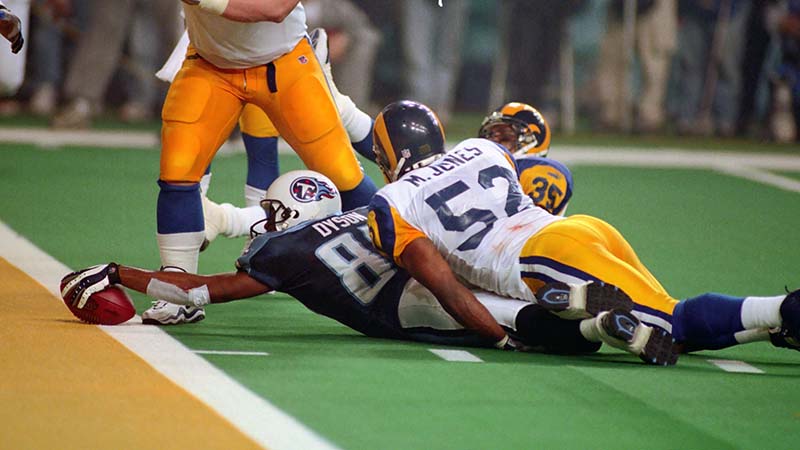
Winner
Super Bowl XXXIV (1999 season)
Everyone knows the story behind the St. Louis Rams' meteoric rise.
After going 4-12 in 1998, the Rams signed Trent Green to be the starting quarterback only to lose him for the season after he suffered a gruesome knee injury in the final game of the preseason.
St Louis turned to a former Arena Leaguer/famed grocery-bagger in Kurt Warner and the “Greatest Show on Turf” was born. The Rams closed at 150-1 to win the Super Bowl prior to the start of the season.
The Tennessee Titans were 30-1 to win the Super Bowl, which was the seventh-lowest odds in the AFC. Tennessee had finished 8-8 the previous three seasons behind head coach Jeff Fischer.
Steve McNair was entering his fifth season but patience was growing thin for the former third-overall pick in 1995 as the Titans brought in veteran Neil O’Donnell during the offseason.
After finishing the regular season 13-3 Tennessee had to pull off the Music City Miracle in the Wild Card round before defeating the Colts and Jaguars on the road to reach the Super Bowl.
MLB
Honorable mentions
1967 World Series
The Boston Red Sox were 100-1 to win the 1967 American League Pennant and finished 72-90 the previous season, their eighth-straight losing season. S
ix National Leagues teams had lower odds to win the Pennant than the St. Louis Cardinals, who were 8-1. This was two years before divisions and League Championship Series were added so for both teams to finish with their league’s best record is even more impressive.
1985 World Series
In 1985, the Kansas City Royals and the St Louis Cardinals each finished 84-78 in the previous season and both teams were in the lower half of teams in their league in terms of odds rank to win the World Series.
Winner
1991 World Series
Before 1991, no team had ever ascended from last place to first place in its respective division or league.
Both the Minnesota Twins and the Atlanta Braves pulled off the feat in 1991 and then went on to meet in what some regard as the greatest World Series ever.
Third baseman Terry Pendleton was a key free-agent signing for the Braves and earned NL MVP honors after hitting 22 home runs and batting .319. Young guns Tom Glavine, Steve Avery and John Smoltz came into their own during the 1991 season as the Braves pitching staff finished with MLB’s third-lowest ERA, a year after finishing dead last in the category.
1991 AL Rookie of the Year Chuck Knoblauch and the free-agent signings of veteran DH Chili Davis and starting pitcher Jack Morris fueled the Twins resurgence.
This was the third World Series matchup where both teams finished with a losing record in the previous season. Interestingly enough, the other two times were also the only other World Series appearances by the Twins (vs the Dodgers in 1965 and vs the Cardinals in 1987).


